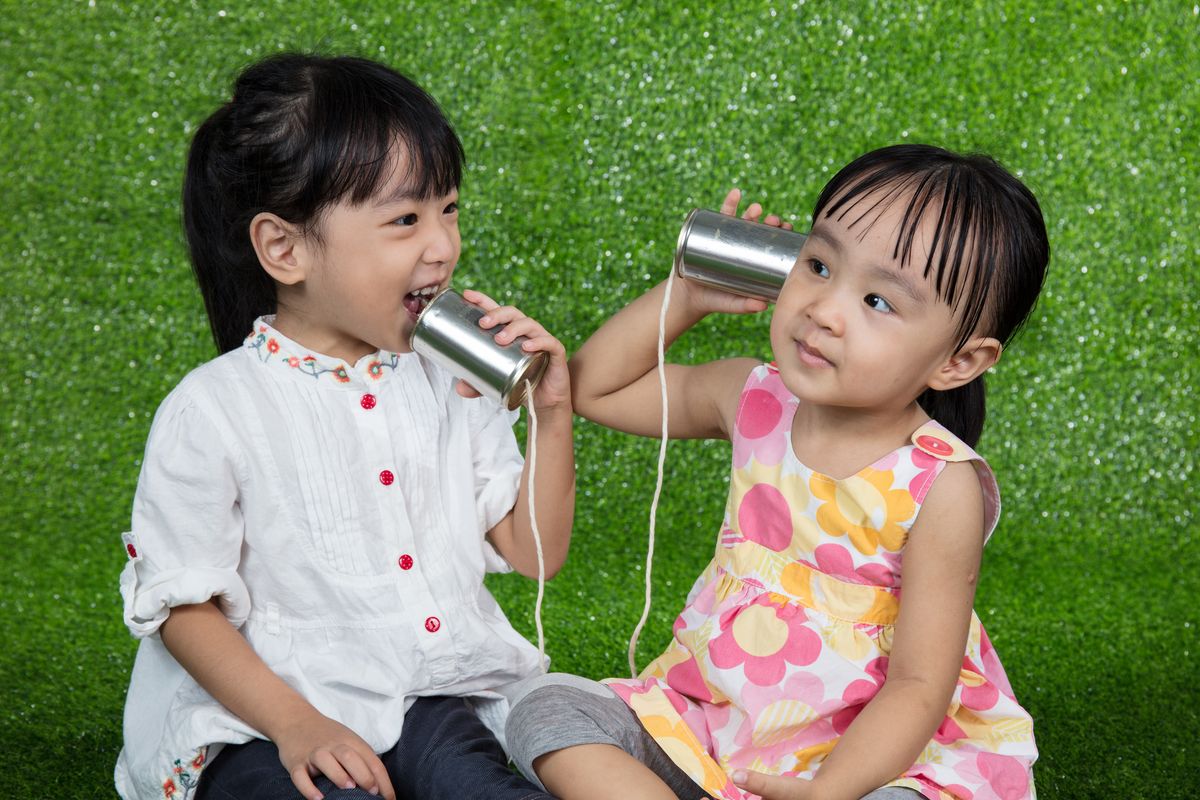In the KEeKs project, we are interested in the relations between the development of emotional and language competencies in childhood.
In a series of empirical studies, the KEeKS projekt aims to investigate the relationships between language development and the develpoment of emotional competences in children. Previous research support the assumption, that children with high levels of language competence are better able to regulate emotional expressions and impulsive behavior and seem to be less prone to behavioral problems. So far, research on the mechanisms behind these relationships is limited. It seems plausible that advanced language competences might facilitate children’s understanding of parents’ and teachers’ emotion coaching as well as children’s own cognitive representation of emotions and emotion regulation strategies. Moreover, children with well-developed language competences might have it easier to communicate their needs and feelings and thus might be able to solve problems more efficiently.
In current studies, we focus on whether the development of emotion-specific language skills (size and depth of emotion vocabulary) in children aged 4 to 16 years supports the development of further emotional competencies such as emotion recognition, knowledge about emotion regulation strategies as well as emotion regulation skills. Based on theoretical approaches on the hierarchical structure of emotion concepts and their development, a multistage procedure was used to develop the Children's Emotion Vocabulary Vignettes Test (CEVVT; Streubel et al., 2020; Grosse & Streubel et al., 2021). The CEVVT consists of 20 vignettes, i.e. short short illustrated scenarios depicting a child in an emotion-provoking situation. The task is to name the emotion that the child in each vignette might feel. In line with recent research on lexical development, the data can be analyzed in a variety of ways to provide differentiated conclusions about the development of emotion vocabulary. As well as its correlation with general language competencies on the one hand and emotional competencies on the other.
Publications
Streubel, B., Gunzenhauser, C., Grosse, G., & Saalbach, H. (2020). Emotion-specific vocabulary and its contribution to emotion understanding in 4-to 9-year-old children. Journal of Experimental Child Psychology, 193, 104790. doi: 10.1016/j.jecp.2019.104790
Grosse, G., Streubel, B., Gunzenhauser, C., & Saalbach, H. (2021). Let’s talk about emotions: The development of children’s emotion vocabulary from 4 to 11 years of age. Affective Science, 2(2), 150-162. doi: 10.1007/s42761-021-00040-2
Conference Presentations
Streubel, B., Gunzenhauser, C., Khammous, N., & Saalbach, H. (2023). The role of emotion-specific language skills on the regulation of facial emotion expression in pre-schoolers. Talk presented at the European Conference on Developmental Psychology. Turku, Finnland.
Streubel, B., Wöbke, T., Gunzenhauser, C., & Saalbach, H. (2023). Physiological outcomes of suppressing positive and negative emotions in pre-schoolers. Poster presented at the European Conference on Developmental Psychology. Turku, Finnland.
Khammous, N., Streubel, B., Saalbach, H., & Gunzenhauser, C. (2023). Functions of language in children’s use of cognitive emotion regulation strategies. Talk presented at the European Conference on Developmental Psychology. Turku, Finnland.
Gunzenhauser, C., Berg, K.K., & Streubel, B. (2023). Contribution of parental emotion-specific vocabulary to children’s emotion-specific vocabulary development. Talk presented at the European Conference on Developmental Psychology. Turku, Finnland.
Grosse, G.; Streubel, B.; Gunzenhauser, C.; Saalbach, H. (2022). Die Entwicklung des emotionsbezogenen Wortschatzes und sein Zusammenhang mit Emotionswissen im Kindesalter, Talk presented 34. Bundeskongress der deutschen Gesellschaft für Sprachheilpädagogik. Berlin.
Große, G.; Streubel, B.; Gunzenhauser, C.; Svensson, F. L.; Imai, M.; Saji, N.; Saalbach, H. (2020). Diving Deep: Mechanisms of children’s semantic field acquisition. Poster presented at the Conference on Cognitive Development. Budapest.
Streubel, B.; Gunzenhauser, C.; Große, G.; Saalbach, H. (2019). Der Beitrag des passiven und aktiven Emotionsvokabulars zum Wissen über Emotionsregulation bei 4-5jährigen Kindern. Poster presented at the Tagung der Fachgruppen für Entwicklungspsychologie und Pädagogische Psychologie DGPs. Leipzig.
Streubel, B.; Gunzenhauser, C.; Große, G.; Saalbach, H. (2019). Freude, Stolz, Zufriedenheit: Entwicklung eines Vignettentests zur Untersuchung des Emotionswortschatzes bei Kindern. Talk presented at the QuanteL Tagung „Statistische Zugänge zu Sprache“. Leipzig.
Gunzenhauser, C.; Streubel, B.; Große, G.; Saalbach, H. (2018). Functions of Language in Children‘s Development of Emotion Regulation. Talk presented at the European Association for Research on Learning and Instruction (EARLI) SIG 5 Conference. Berlin.
Streubel, B.; Gunzenhauser, C.; Große, G.; Saalbach, H. (2018). Der Beitrag allgemeiner und emotionsspezifischer Sprachfähigkeiten zum Emotionswissen 4-11jähriger Kinder. Talk presented at the Kongress der Deutschen Gesellschaft für Psychologie. Frankfurt/M.
Voltmer, K., & Streubel., B. (2018). Emotionale Kompetenzen im Kindesalter. Teil I: Methoden der Erfassung. Symposium conducted at the Kongress der Deutschen Gesellschaft für Psychologie. Frankfurt/M.
Streubel, B.; Gunzenhauser, C.; Große, G.; Saalbach, H. (2017). Joy, Pride, Contentment – Conception and First Results of a Vignette Test to Assess Childrens Emotional Vocabulary. Talk presented at the Tagung der Fachgruppen für Entwicklungspsychologie und Pädagogische Psychologie DGPs. Münster.
Streubel, B., Voltmer, K., & Gunzenhauser, C. (2017). Emotionen und emotionale Kompetenzen im Kindes- und Jugendalter. Teil I: Methoden der Erfassung. Symposium conducted at the Tagung der Fachgruppen für Entwicklungspsychologie und Pädagogische Psychologie DGPs. Münster.
Information on the projekt
Funded by the German Research Foundation (DFG)
